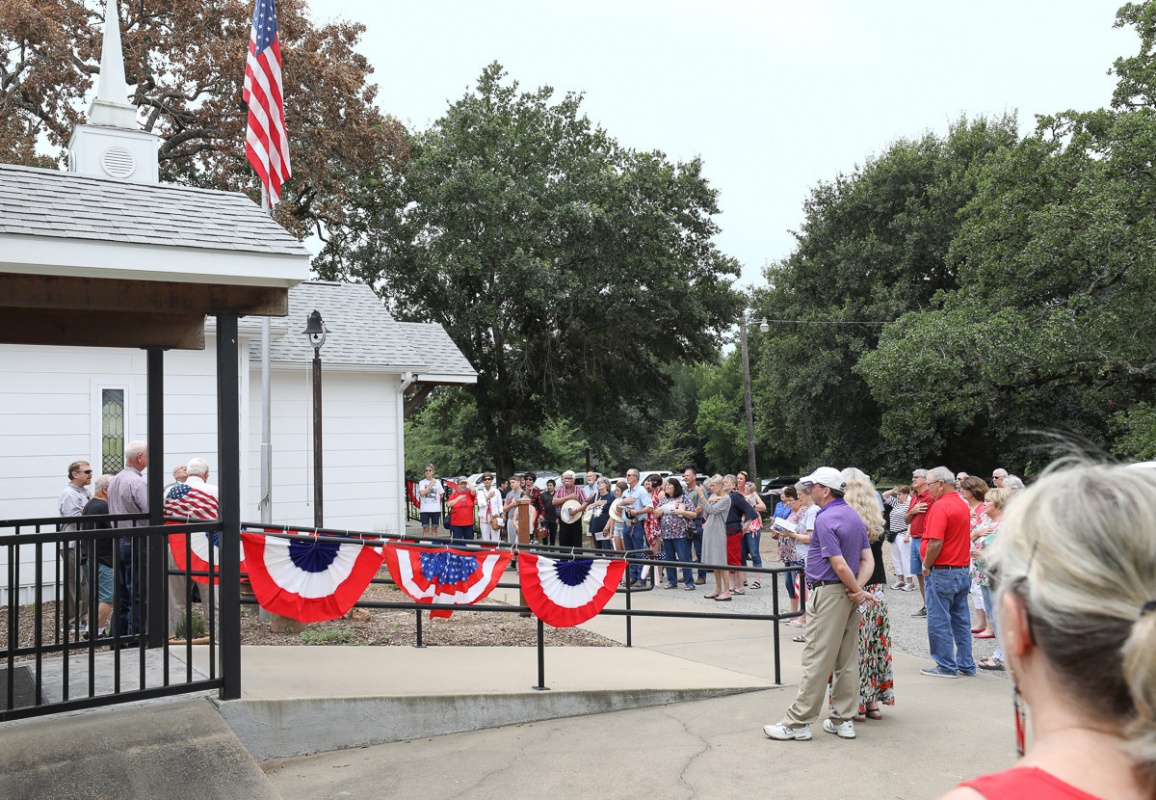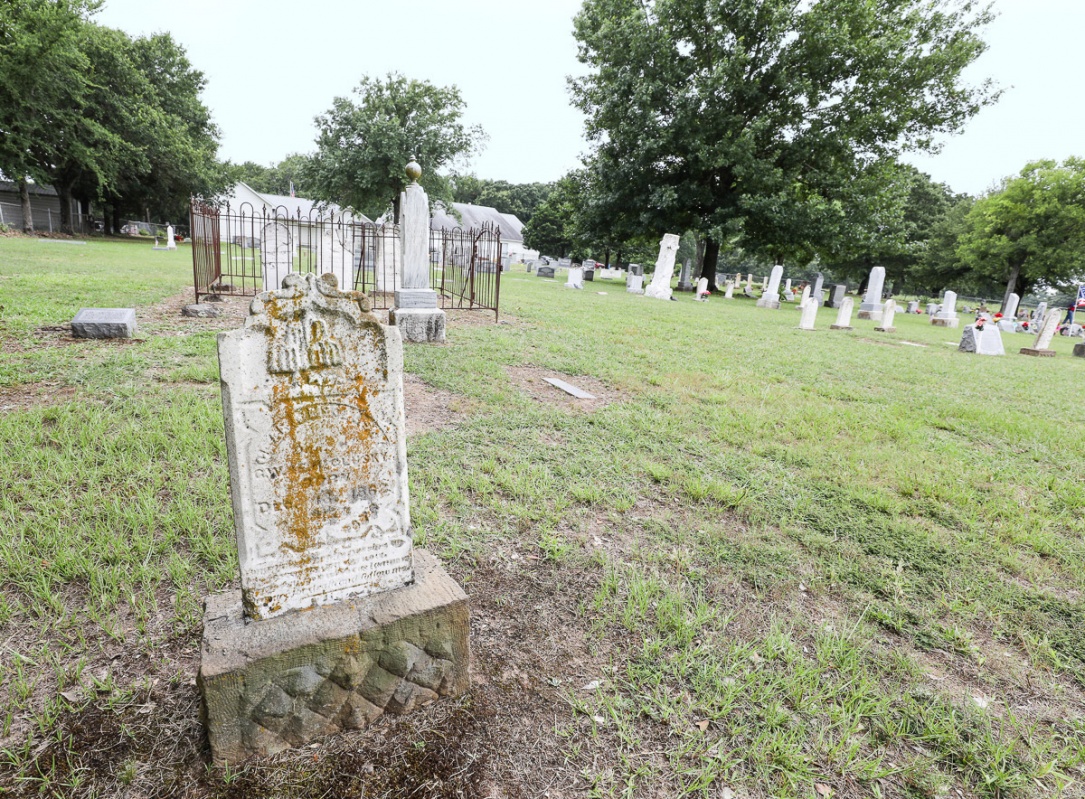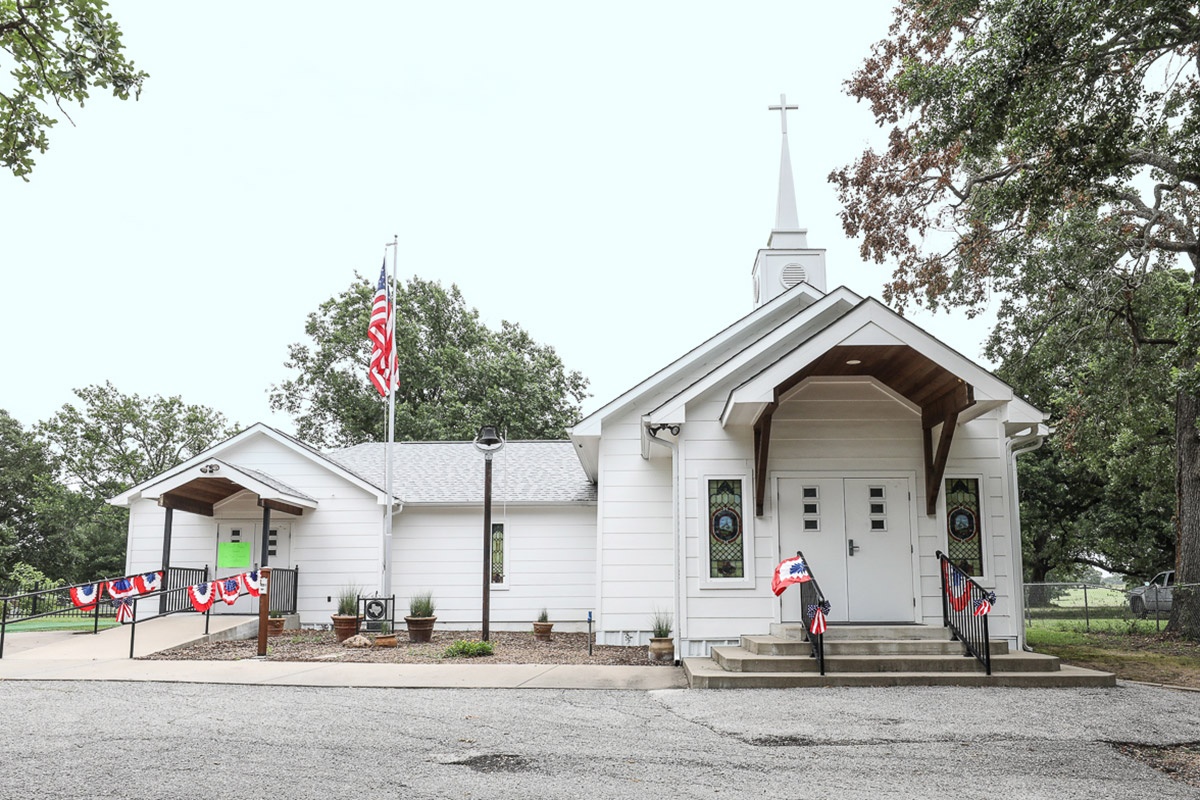Much like today, the early days after Texas joined the United States saw waves of people coming to make a new home and fortune in the Lone Star State.
The opportunity for making a new life in Texas was a draw in 1847 when Johan Reierson led a group of Norwegian Lutherans to Four Mile Prairie in western Van Zandt County.
After a daunting journey across the Atlantic, going by land from New Orleans to East Texas and a short stay in what is now Brownsboro, the group settled and came together to form what is now the oldest Lutheran church in the state of Texas.
The church’s cemetery tells the tale of the early pioneers, and the small white buildings stand in contrast to the surrounding oaks and elms in a way reminiscent of a historic illustration. Tucked back off of any main thoroughfare, finding the church is like coming upon a scene from the past.

The Four Mile Lutheran Church Fourth-of-July celebration draws church members and families from around the area and raises funds for the church’s historic cemetery.
Don Johnson
Fortunately, the church’s history was captured in the letters of prolific writer Elise Waerenskjold, who worked in the church for a time. Her correspondence was of such a quality that they were compiled into the book The Lady With a Pen, keeping the deep roots of the church’s place in history for all to read.
By 1860, the nearby community of Prairieville was booming, and contributing to the local economy and civic projects. Elise’s husband, Wilhelm Waerenskjold, was hired to furnish building materials for the new Kaufman County Courthouse.
According to The History of Van Zandt County, “No more industrious, patriotic, self-supporting people have ever settled in Van Zandt County than these hardy Norwegians.”
The Civil War put a major strain on the economies and families throughout the country, and Prairieville saw its share of turmoil. The Norwegians were generally sympathetic to the north and were against slavery, which caused friction in the community.
Then in 1868, the community and the church at its core was tested by the departure of many key families who moved to Bosque County after sickness swept through the community, killing some 12 people in 1867 alone.

The church’s cemetery has graves dating back to early settlers from Norway.
Despite the losses, the church remained steadfast in its mission and ministry to its part of the Texas landscape.
“Now, our mission is the same as always, but we have the same struggles as any modern church,” said Ted Swinford, who serves as president of the church council. “How do you reach a generation that has grown up on iPhones and the internet, and get them to see what it means to be a part of something like this?”
If history is any indicator, the church has a great future ahead no matter the changes that come.


